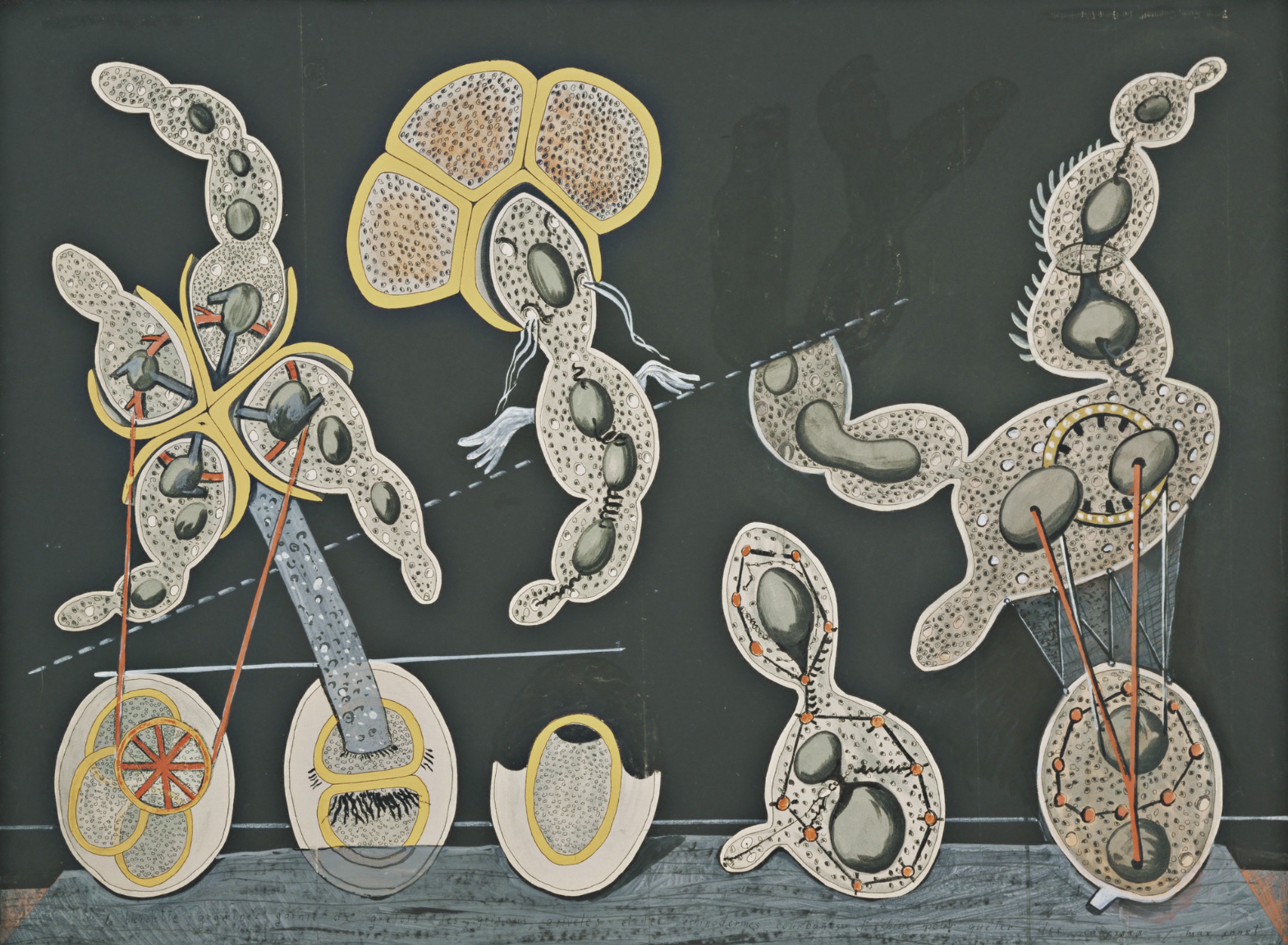Publishing
Publishing and Political Culture
The New School’s Creative Publishing & Critical Journalism (CPCJ) and Woodbine Research Center present a discussion on the role of radical politics in publishing. ...
NDPR Now Welcomes Book Review Proposals
Last month’s discussion of book reviews discussed, among other things, the decline in the number of reviews published by Notre Dame Philosophical Reviews (NDPR). A policy change may reverse that trend.

NDPR does not accept unsolicited book reviews, and has to date only published book reviews that it has invited people to write.
Now, it will accept unsolicited book review proposals from prospective reviewers. If the proposal is approved, then the person making the proposal will be invited to submit a review.
The new policy is on the NDPR website:
Reviews are commissioned and vetted by a distinguished international Editorial Board. We do not accept unsolicited reviews, but welcome proposals for reviews from suitably qualified reviewers (in the normal course of affairs, a qualified reviewer will have received a doctoral degree in philosophy or other relevant discipline). In the event that a proposal is received, we will vet it in the normal way with our Editorial Board before determining whether to issue an invitation to write a review.
The current editor of NDPR is Christopher Shields (UCSD).
The post NDPR Now Welcomes Book Review Proposals first appeared on Daily Nous.
The Challenges of a Large Interdisciplinary Project (guest post)
Over the past decade or so we’ve seen philosophers win sizable grants for projects involving multiple teams of researchers with different disciplinary and institutional homes.
What are some of the challenges involved in keeping such a project going, and how might they be addressed?
In the following guest post, Keely Khoury and Peter J. Hundt, both at the University of Minnesota and both part of the support staff for philosopher Alan C. Love‘s big “Agency, Directionality, and Function: Foundations for a Science of Purpose” project, discuss some of these challenges, focusing on publishing—especially open access publishing.

[Max Ernst, “The Gramineous Bicycle Garnished with Bells, the Dappled Fire Damps, and the Echinoderms Bending the Spine to Look for Caresses”
The Challenges of Publishing Open Access Work from an Interdisciplinary Research Project
by Keely Khoury and Peter J. Hundt
About the Project
The “Agency, Directionality, and Function” project, led by Alan C. Love, brings together 130 researchers from 50 different institutions, divided into 24 teams, with the teams grouped into seven clusters, each with a slightly different angle of inquiry into one of the project’s three conceptual themes: agency, directionality, and biological function.
With its large size and complex structure, the project faces various challenges on the way to its goal of “advancing fundamental theoretical and philosophical concepts for goal-directed phenomena with the specific aim of operationalizing them for theoretical and empirical inquiry.”
Commitment to Open Access
The project also aims to “foster new lines of scientific research based on an increased array of conceptual possibilities, distinctive formal modeling strategies, and next-generation experimental platforms for the discovery, observation, and manipulation of purposive phenomena” in biology and beyond.
To do this, the project was committed to making all publications, whether conceptual, theoretical, or empirical, freely accessible. That commitment extends to research materials that include protocols for experimental platforms, software code for computational modeling, and mathematical proofs for formal models. Given that project participants have expertise in fields that range from cancer research and evolutionary and developmental biology to paleontology, ecology, computer science, philosophy and more, the details of this commitment are complicated (to put it mildly).
The idea is great. Accomplishing it is the challenge.
Challenges
The size of this cohort program allowed us to observe and support the publishing process for team members in a range of fields, in several nations, and at varying stages in their academic careers. The project budget included money explicitly for paying Open Access fees and for support staff to help connect and guide teams through structured interdisciplinary interactions.
Starting from this relatively privileged position did not, however, simplify significantly the processes required to publish work open access.
The hurdles we experienced were related to several sources: a feeling of ambivalence towards publishing work open access because of the high cost; the variety of complexities of processes between titles and fields of study; and the efficiency and efficacy of tracking outputs, particularly as articles moved from pre-print to final versions.
Knowledge of the Process
From the start, there were differing levels of awareness of open access publishing across the disciplines represented by the scholars in the cohort program. Many of the scientists had at least some experience with or knowledge of what was involved in publishing their work open access, with a few contributing to upwards of 25 papers that were made freely available in the two years preceding the start of this project.
Scholars in the humanities were less likely to have had similar experiences. An interim review of the papers published open access by members of the cohort program found that more than one-third came from only two areas of science, with the arts and humanities and social sciences each comprising roughly five per cent of the number of publications. The speed at which publishing in the various fields occurs is part of this difference, but not all of it.
Part of what makes this project special is the funding dedicated to publishing open access. Both the central project management team and each of the 24 teams comprising the cohort program were granted funds specifically for this. That is a rarity. To help make best use of these dedicated funds, we ran an internal information campaign, and dedicated a staff member to shepherding teams towards and through open access publishing.
A resource that we discovered to be incredibly helpful in our work navigating different systems and tracking outputs is institutional librarians. Likely a vastly underutilized source of knowledge, the librarians we worked with readily shared their expertise gained through their experience of working with publishers and publishing processes.
One of the tips they shared with us is to have authors retain the copyright to their work as a way of publishing open access after initial publication in a journal. Of the scholars we spoke to in the cohort program, some didn’t know about this option or, if they did, thought it was too time-intensive to be useful.
Having institutional templates for negotiating this type of ownership would go a long way towards reducing the burden on individual scholars. Educating graduate students in the publishing process, with particulars for their field of study, would also strengthen their ability to contribute meaningfully and purposefully to the accessible dissemination of their work.
Cost and Time Challenges
Even when researchers are convinced of the importance of publishing open access, the current systems are not easily understood or traversed. For one of our program’s open access publishing projects, legal hurdles proved to be particularly time-consuming.
A book edited by a cohort program participant, and containing chapters written by others in the program, was nearing completion when we sent the first query about publishing it open access. Because the editor already had a contract in place with the publisher, the termination of the original contract, and writing of a new one, took almost nine months to complete. That followed many months of back-and-forth communication regarding the general feasibility of, and financial responsibility for, publishing an entire book this way.
Ultimately, it took 19 months to publish the book open access and was only possible because of the funds the program had already ringfenced for this type of publishing. For authors without such explicit financial means and institutional support, the time it took to publish the work in this way would most likely be considered not worth the expenditure and certainly unattainable economically.
Tracking Outputs
Tracking the publications of the teams and their members has proven to be one of the more complex and time-consuming tasks of the program, with much of the work requiring regular manual checks. The proliferation of online search tools and storage programs meant a lot of trial and error in our efforts to find a combination of systems that most accurately tracked publications from project participants. The diversity of fields encompassed by these teams, and sheer number of researchers involved, made the undertaking particularly complicated and involved weekly checks of at least six preprint servers. Now, thankfully, that task has become easier thanks to Scopus’ preprints search tool that collates data into a single space. We also set up at least one digital search alert for each of the 130 scholars. This entails a continual sifting of results to weed out oddities that the algorithm searches present to us.
Ensuring that our project-wide bibliography does not include predatory journals adds a further layer of manual labor to the process. Disagreement over the categorization of certain journal titles necessitates an element of subjectivity in what to include or exclude in our record keeping.
As well as publishing written papers, part of the project’s pursuit of open science includes sharing de-identified data and research materials in a publicly accessible repository. The purpose is to make it possible for an independent researcher to reproduce the reported results. This is an area of work within the project that is still in progress as we consider ways in which to record most efficiently the existence of these datasets and note to which project they relate.
Interactions and Reproducibility
As an attempt to cultivate a new type of research community, the mix of philosophers, theoreticians, and experimentalists that comprise the members of this cohort program are scholars at different stages in their careers. That, along with the organization of opportunities for interaction, discussion and feedback across disciplines, provides participants with an interactive peek into areas of research that many would otherwise not have the time or chance to access.
Another way this project attempts to stimulate scholarly change through thematic working across disciplines is to provide participants with a monthly list of publications by members of the cohort program. That list allows researchers to scan titles of work and dip in and out of a mix of ideas that otherwise would most likely be unfound amidst the general, and growing, deluge of academic publishing and data production. Organizing opportunities for serendipitous connections sounds counterintuitive, but reducing the strain on a scholar’s time makes it easier for them to identify relevant, interesting and inspirational work by others, in their own field and beyond.
Lastly, without the project’s funding dedicated to open access publishing, the relatively high number of papers from cohort program participants published in this way would no doubt have been less. The elaborate heterogeneity we encountered throughout the academic publishing industry as we developed processes to encourage, support and track open access publication makes the record of this work an important foundation for future development and improvements, within publishing and interdisciplinary research projects. The program’s attempt to build common vocabularies for data, models and concepts and establish reporting standards further cultivates the reproducibility of large-scale interdisciplinary work formats.
The post The Challenges of a Large Interdisciplinary Project (guest post) first appeared on Daily Nous.
Tactical Publishing: Using Senses, Software, and Archives in the Twenty-First Century – review
In Tactical Publishing: Using Senses, Software, and Archives in the Twenty-First Century, Alessandro Ludovico assembles a vast repertoire of post-digital publications to make the case for their importance in shaping and proposing alternative directions for the current computational media landscape. Although tilting towards example over practical theory, Tactical Publishing is an inspiring resource for all scholars and practitioners interested in the critical potential of experimenting with the technologies, forms, practices and socio-material spaces that emerge around books, writes Rebekka Kiesewetter.
 Working at the intersection of art, technology, and media, Alessandro Ludovico is known for his contribution to shaping the term “post-digital” through his book Post-Digital Print: The Mutation of Publishing Since 1894. Ludovico’s notion of the post-digital, in brief, challenges the divide between digital and physical realms by exploring the normalisation and ubiquity of the digital in contemporary culture and urges for a nuanced perspective beyond its novelty, as boundaries between online and offline experiences blur.
Working at the intersection of art, technology, and media, Alessandro Ludovico is known for his contribution to shaping the term “post-digital” through his book Post-Digital Print: The Mutation of Publishing Since 1894. Ludovico’s notion of the post-digital, in brief, challenges the divide between digital and physical realms by exploring the normalisation and ubiquity of the digital in contemporary culture and urges for a nuanced perspective beyond its novelty, as boundaries between online and offline experiences blur.
Tactical Publishing is presented as a sequel, evolving and updating Ludovico’s concept for the concerns of a contemporary computational media landscape shaped by technologies and platforms (social media, algorithms, mobile apps and virtual reality environments) owned by large multinational corporations. Through discussing a wide variety of antagonistically situated experimental and activist publishing initiatives, Ludovico discovers fresh roles and purposes for books, publishers, editors, and libraries at the centre of an alternative post-digital publishing system. This system diverges from the “calculated and networked quality of publishing between digital and print … to promote an intrinsic and explicitly cooperative structure that contrasts with the vertical, customer-oriented industry model” (8).
Ludovico develops this argument around a captivating array of well and lesser known examples from the realms of analogue, digital, and post-digital publishing stretching the prevalent boundaries of what a book was, is, and can be. Ranging from Asger Jorn’s and Guy Debord’s sandpaper covered book Mémoirs (1958), to Nanni Balestrini’s computer generated poem “Tape Mark 1” (1961), to Newstweek (2011), a device for manipulating news created by Julian Oliver and Danja Vasiliev. Tactical Publishing also ventures into the complex relationships, practices, socio-political and economic contexts of the production and reception of books. It draws on these relational contexts to explore their disruptive potential. For example, through forms of “liminal librarianship” practiced by DIY libraries, networked archiving practices of historically underrepresented communities, and custodianship in the context of digital piracy.
Ludovico develops this argument around a captivating array of well and lesser known examples from the realms of analogue, digital, and post-digital publishing stretching the prevalent boundaries of what a book was, is, and can be
As in Post-Digital Print, Tactical Publishing offers an abundantly rich resource for scholars interested in exploring the ways in which experimenting with the manifold dimensions that make up books, can be a means for creative expression, intellectual exploration, and social change in the digital age. Ludovico dedicates considerable attention to these case studies, allowing them ample space to shine and speak by themselves in support of his argument.
The book is divided into six chapters, each mixing illustrative instances of practical application with theoretical reflection. Chapter one explores how reading is transformed by digital screens. These, as the author explains, tend to enforce industrially standardised experiences, while neutralising cultural differences and leading to a potential loss of sensory involvement. Ludovico proposes to reclaim enriched and multisensory reading experiences by combining digital tools and physical qualities. He illustrates this proposition by discussing a series of publishing experiments in music publishing that have used analogue and digital technologies to integrate text and music media.
Chapter two examines the transformation of the role of software in writing. Here, Ludovico presents a transition from an infrastructural to an authorial function that blurs distinctions between human and artificial “subjectivities”. The latter being a simulation of human-like experiences, characteristics, and behaviours often associated with human subjectivity, such as learning, decision-making, or emotional responses. This simulation Ludovico argues increasingly obstructs the ability to distinguish between actions and expressions originating from humans and those generated by technological systems. Ludovico contends that the “practice of constructing digital systems, processes, and infrastructures to deal with these new subjectivities can become a political matter” (89). One that requires initiatives intertwining critical and responsible efforts in digitising knowledges, making digital knowledge-bases accessible and searchable, and developing and maintaining machine-based services on top of them. However, the origin and nature of these institutions, and what their efforts might entail remain unspecified.
Ludovico presents a transition from an infrastructural to an authorial function that blurs distinctions between human and artificial “subjectivities”.
Chapter three explores how post-truth arises from a constant construction and deconstruction of meaning in transient digital spaces, and through media and image manipulation. Ludovico emphasises that, in this context, it is important to build “an information dam … to protect our minds from being flooded with data, especially emotionally charged data” (123). Chapter four, “Endlessness: The Digital Publishing Paradigm”, makes the case that the fragmented short formats characteristic of digital publishing underscore the importance of the archival role of print publications and the necessity of networks of “critical human editors” (130). These can act as a counterbalance to this flood of information and foster a more focused and collaborative exchange of information.
Chapter five proposes a transformation of libraries from centralised towards distributed and networked knowledge infrastructures in which librarians strategically contribute to the selection and sharing of “relevant collections” (197). Chapter six concludes Tactical Publishing synthesising the previous chapters by proposing the strategic integration of analogue and digital realms within an “open media continuum” rejecting a calculated, networked approach in favour of a cooperative structure sustained by “responsible editors” (212), publishers, librarians, custodians, and distributors. Last but not least, a useful appendix offers a selection of one hundred publications, encompassing both print and digital formats.
Tactical Publishing sits within a well-established canon of critical media studies, digital humanities, and cultural studies, focusing on the materiality of media, historical dimensions of technology, media ecology, politics of information, and socio-cultural implications of post-digital communication. However, its theoretical contributions are at times subdued by the host of examples presented. Some readers may also be left wanting a more pronounced engagement with recent theoretical works discussing the concept of post-digital publishing and its interventionist potential into dominant publishing systems, norms, and cultures from cultural hegemony critical, post-Marxist, various feminist, post-hegemonic, and ecologically-minded perspectives. Such an engagement might have helped clarify questions about the politics and ethics related to the alternative post-digital publishing system and the “comprehensive liberatory attitude” (4) Ludovico advocates for, beyond the motivation to counter the alienation of the current computational media landscape.
Tactical Publishing sits within a well-established canon of critical media studies, digital humanities, and cultural studies, focusing on the materiality of media, historical dimensions of technology, media ecology, politics of information, and socio-cultural implications of post-digital communication.
Similarly, Tactical Publishing also leaves unresolved related questions of positionality, accountability, and agency. For example: Who is the “we “Ludovico addresses, not least in the final chapter titled “How we Should Publish in the 21st Century”? What drives “the critical human editors” (130) whose role is to “filter the myriad of sources, to preserve their heterogeneity, to … include new sources, but to keep their final number limited, and to confirm them, transparently acknowledged, in order to strengthen trusted networks” (211), and what legitimises their activity? And where, in a post-digital world, is “the personal trusted human network” situated that, according to the author, can be “resistant to mass manipulation by fake news and post-truth strategies” (123)?
However, despite (or exactly because) the theoretical argument occasionally takes a backseat to numerous meticulously selected and well-arranged examples, Tactical Publishing is an inspiring resource for all scholars and practitioners in design, the arts, humanities, and social sciences that are interested in the ways in which experimental publishing can help question, challenge and rearrange dominant publishing systems.
Note: This article was initially published on the LSE Impact of Social Science blog.
This post gives the views of the author, and not the position of the LSE Review of Books blog, or of the London School of Economics and Political Science.
Image credit: Dikushin Dmitry on Shutterstock.
The Case for a Peer Review Market (guest post)
“The academic peer review system as it currently stands is frustrating and dysfunctional for many of those who participate in it.”
So writes David Thunder, Research Fellow in Political Philosophy at the University of Navarra.
In the following guest post, he briefly identifies some of the problems with the current system of peer review, and suggests they can be remedied with a kind of referee marketplace in which editors can shop for—and purchase—referee services.

[detail of an artwork by Yau Hoong Tang]
The Case for a Peer Review Market
by David Thunder
The academic peer review system as it currently stands is frustrating and dysfunctional for many of those who participate in it. Below, I detail some of its most salient limitations, and afterwards propose an innovation that could mitigate these issues.
Limitations of the Current Peer Review System
1. Because peer review services are often pro bono or done for a nominal fee, they rely on the goodwill and sense of personal responsibility of each reviewer, not on an enforceable contractual obligation. Because of the pro bono nature of many reviews, the motivation for doing them is something like “duty to the profession,” unless a reviewer has a strong personal interest in a specifical manuscript. There is no enforceable contractual obligation to speak of. This has two negative consequences:
- First, reviews may be either half-hearted or submitted very late, which has negative knock-on effects for publishers and authors alike.
- Second, due to the limits of moralistic motives that are not remunerated, editors may have to spend months trying to secure a scholar willing to conduct a time-consuming review.
2. Because there is almost no form of public accountability for reviewers, and they know this, the quality of reviews is mixed. Some are excellent, others acceptable, and others based on personal prejudices or superficial readings of a text. In any case, the effect of a pro bono system, combined with the fact that reviewers’ work is not publicly evaluated or held accountable, is to create a class of gatekeepers who only answer privately to editors for the quality and timeliness of their work, and cannot realistically be pressured too much given that their work is pro bono.
Effects of the Current System for Authors and Publishers
1. Publishers are put in a difficult situation in which they subject authors to lengthy, career-damaging delays over which they have little control.
2. Publishers may find that their ability to bring work to the market efficiently is undermined by needlessly drawn out review times.
3. Authors may find articles and book manuscripts sitting under review far beyond the estimated review times. In the case of book manuscripts, these delays may be especially long (anywhere from 6 months up to 18 months), and have negative repercussions for a scholar’s career.
A Proposal for a Peer Review Market
I propose to create a virtual peer review market, through which both authors and publishers/editors can search for available peer reviewers and solicit their services on a competitive and professional basis.
The basic idea is that each peer reviewer compiles an online profile which may be independently vetted before it goes live. The profile would include name, educational background, publications, number of peer reviews conducted, average rating for their reviews, and a negotiable offer price and guaranteed turnaround time for reviews.
Editors and authors would also have an online profile in the system, and they could solicit peer reviewers’ services and indicate their required turnaround time. They could also use the system to rate the work done under different variables (e.g. quality, comprehensiveness, punctuality), and make payment for services rendered.
Benefits of a Peer Review Market
People who are paid for the work they do tend to give it a higher priority and feel a strong sense of duty to do it properly and on time. In addition, if reviewers know they will be rated publicly for their work, they are more likely to take is seriously. The end result of a marketized system is more peer reviews of a higher quality, and more peer reviews turned in on time.
A second advantage of a public peer review market is that editors and authors may search for eligible reviewers from a much larger database that includes important data about past experience and reliability as well as areas of specialization. When people know they can make money from reviewing manuscripts, they will have a greater incentive to up their game and develop an attractive portfolio of review experiences. This is a win-win for authors, editors/publishers and reviewers alike.
Challenges and Questions
A professional peer review market may pose certain challenges, especially at the start:
- Universities, journals and book editors would have to expand their budget for academic reviews if pro bono reviews are phased out.
- Some unscrupulous reviewers may try to “game” the system by getting paid for low quality reviews. But this should be discovered fairly quickly when their work is rated by editors and/or authors.
What do you think are the strengths and weakness of this proposal? Do you have any practical suggestions for the implementation of this or other reforms of our peer review system?
The post The Case for a Peer Review Market (guest post) first appeared on Daily Nous.
Tactical Publishing: Using Senses, Software, and Archives in the Twenty-First Century – review
In Tactical Publishing: Using Senses, Software, and Archives in the Twenty-First Century, Alessandro Ludovico assembles a vast repertoire of post-digital publications to make the case for their importance in shaping and proposing alternative directions for the current computational media landscape. Although tilting towards example over practical theory, Tactical Publishing is an inspiring resource for all … Continued
Reprint Fees: Higher than You Thought
Putting together an anthology or volume of collected works? You might want to check your budget. Reprint fees can can be pretty high. An article from Kant-Studien could run you over $4500. One from Phenomenology & Philosophical Research? Almost double that, though it depends on the particular article.

William Lewis, professor of philosophy at Skidmore College, has been working on putting together an edited volume of works by the late W.A. Suchting, an Australian analytic philosopher of science from the late 20th Century.
His experience has led him to be concerned that books of this type will become rarer and rarer, owing to the high reprint fees publishers are charging.
He writes:
Our original plan was to publish about twenty of his most important articles with a new editorial introduction and in an edition of five hundred or so copies. We have very little budget and we hope to publish with an academic press whose budget is also limited. The articles in question appeared in journals like Kant-Studien, Science & Education, Philosophy and Phenomenological Research, BJHP and the Australasian Journal of Philosophy. While some of these journals were independent at the time when his articles were published, the rights to most articles are now controlled and managed by Springer, Elsevier, De Gruyter, Blackwell, Oxford, etc.
As little as ten years ago, it was possible to write to (human) editors at most of these presses, even the big ones, and negotiate reasonable and often free republication rights. This is now impossible: such editors no longer exist and one is referred to either in-house or third-party automated systems who spit out a price—often exorbitant—for republication based on one’s inputs.
Professor Lewis shared the quoted reprinting costs for the articles planned for inclusion in the volume. The most expensive, at $8979.50, is an article from Studies in History and Philosophy of Science Part A, published by Elsevier. Next is an article from Philosophy and Phenomenological Research, published by Wiley, for $8913.50. That’s followed by $4579.50 for an article from Kant-Studien and $1251.50 for one from Analyse & Kritik, both published by DeGruyter. Many of the others were around $600.
He continues:
What I’m wondering is the following (and I’m hoping Daily Nous readers can help). One, is there a possible way to negotiate these fees so as to make volumes like this possible? Two, if it is necessary to pay these extortionate fess, how have folks managed to do so?
Much of my philosophical education came from buying books with titles like Philosopher X, Selected Writings or The Philosopher Y Reader. Are we to lose these resources in this new rent-seeking age of academic publishers?
Your advice and comments welcome.
The post Reprint Fees: Higher than You Thought first appeared on Daily Nous.
Books vs. Articles in Philosophy
“I’ve heard people joke on more than a couple of occasions that publishing a book is the way to get around Reviewer 2 at the journals.”

An assistant professor of philosophy has a query about the relative career-value of books and articles.
He writes:
When I was a grad student, I viewed the publication of a book as the pinnacle of publication prestige. Publishing a few articles in journals like Noûs, Ergo, etc. was an achievement, but publishing a book with Oxford University Press, Routledge, etc. was even more impressive. My anecdotal impression is that this kind of view is widespread.
I suppose I’m wondering whether it’s true that this kind of view is widespread, and if so, whether it ought to be.
The latter question has been especially salient to me since becoming an assistant professor and speaking with several other assistant professors over the last couple of years. All of us have, since becoming assistant professors, been invited by various presses to publish with them. (These are profs from all kinds of institutions, by the way). And many of us have also noticed in providing referee reports to such presses, that the barrier to publishing with them is quite low—much lower than a series of papers with top journals. Indeed, I’ve heard people joke on more than a couple of occasions that publishing a book is the way to get around Reviewer 2 at the journals. All of this makes me think that perhaps books shouldn’t be held in such high regard if they are. But are they? And should they be if so?
What are your impressions, readers?
The post Books vs. Articles in Philosophy first appeared on Daily Nous.
Dialectica and the Challenges of Converting a Journal to Open Access
A reader recently pointed out that the philosophy journal Dialectica in 2020 became an open access journal, after 15 years of being published by Blackwell-Wiley, but that the journal’s latest issue was dated 2020. What’s going on at this journal?

A lot, it turns out.
I asked the journal’s editor, Philipp Blum (Lucerne), for an explanation, which he provides below. As you’ll see, the conversion of a journal to open access can be difficult. Dr. Blum describes some of the various challenges involved, and the work that he and his fellow editors have been doing over the past few years.
The light at the end of the tunnel is this: over the next two months, Dialetica will be publishing 12 issues, catching the journal up to the end of 2023, with plans to publish the first 2024 issue by the end of April.
Here is Dr. Blum’s account:
The Editorial Board of Dialectica, the Swiss philosophy journal founded in 1947 by Bernays, Gonseth and Bachelard, decided in 2019 to go real (so-called “Platinum” or “Diamond”) Open Access, increasingly dissatisfied with the combination of poorer service and higher costs provided by our former publisher Blackwell (bought by Wiley in 2007) and convinced that universities should not have to pay for the fruits of the work of their employees. Helped by a grant by the Swiss National Science Foundation for the year 2020, we founded the Dialectica Open Access Initiative to develop a workflow, based on Markdown and MacFarlane’s pandoc, turning final manuscripts into aesthetically pleasing pdfs and smartphone readable htmls.
Unfortunately, this took us a really long time. In retrospect, it would have been better to cancel our publication contract with Wiley at the end, rather than at the beginning of the flipping process. Using only freely available software, we had to develop a number of tools, for example environments for principles and statements common in philosophy papers, which we make freely available on our GitHub “DialOA” page. In the context of this second project, funded by swissuniversities, we also started working on an OA toolkit, to lay out the choice-points and difficulties we faced, in the hope of helping other philosophy journals to go OA – which, for us, means getting rid of commercial publishers altogether. We also started making publicly available the huge bibliography we use for the copy-editing of Dialectica articles, which may, perhaps, one day complement PhilPapers and CrossRef.
During this time, we maintained our ordinary procedures: good papers kept being sent in, the Editorial Committee met every week to discuss them, using the “fishpond”, our system for triple-blind refereeing. With the indispensable help of my co-editor, Fabrice Correia of the University of Geneva, we accepted original papers of the highest quality for all the Dialectica issues up to 76(4), the autumn issue of 2023, all of which are now being copy-edited and will soon be made freely available to everyone.
To those with papers to submit, he adds:
Now is the perfect time to submit your paper to Dialectica: we are able to speedily review them and there are still open slots in 77(1), to be published in April.
And to the philosophical community, he says:
Any advice, especially on copy-editing and collaborative proof-correction, as well as new members for the Editorial Committee are most welcome! Please write to dialectica@philosophie.ch.
Dialectica bills itself as a “general analytic philosophy journal”. It is the official organ of the European Society of Analytic Philosophy. You can learn more about it here.
The post Dialectica and the Challenges of Converting a Journal to Open Access first appeared on Daily Nous.